Description
ABSTRACT
Judgement Creditor Seeking Permission from an Adversary: An Exposition of the Practice of Garnishee Proceedings in Nigeria
Dr. Abdulrazaq Abdulkadir*
One of the methods by which money judgments can be enforced is by way of garnishee proceedings. A judgment creditor is allowed to institute an action in court against a third party who is in possession of the judgment debtor’s fund. That the proceedings are filed against a third party presuppose that a judgment has been obtained against a judgment debtor. The third party is under an obligation not to release a specified amount of money to the judgment debtor after the court has granted Order Nisi. It is not every debt that is attachable by way of garnishee proceedings. For the debt to be attachable, it must be due and accruing. The focus of this paper is to examine the position of the law in Nigeria where the judgment debtor against whom judgment is obtained is a constituent of the federation (Federal Government, State Government or any of its agencies); whether the consent of the Attorney General of the Federation or State is a sine-qua non to the filing of garnishee proceedings. The paper argues that it is no longer the requirement of the law in Nigeria for the Attorney General’s consent to be sought and obtained before execution of a judgment is carried out even though, in practice, the consent of the Attorney General is still being required based on a misconception of the provisions of Section 84 of the Sheriffs and Civil Process Act.
INTRODUCTION
The word “Garnish” is an old French terminology indicating warning or preparing. It serves as notice of warning of indebtedness that must be paid to a creditor before a person is entitled to receive property as an heir. The word garnishee means a person or institution (such as a bank) that is indebted to or is bailee for another whose property has been subjected to garnishment.1 Garnishment on the other hand is a judicial proceeding in which a creditor (or potential creditor) asks the court to order a third party who is indebted to or is bailee for the debtor to turn over to the creditor any of the debtor’s property (such as wages or bank balances) held by that third party.2 It is a method of seizure but it is not a levy in the usual acceptance of that term. It is a proceeding by which a diligent creditor may legally obtain preference over other creditors and it is in the nature of a creditor’s bill or a sequestration of the effects of a debtor in the hands of his debtor. In the case of STB Ltd v Contract Resources (Nig) Ltd,3 per Olagunju, JCA, at page 123, “garnishee” was defined as:
… a third party who is indebted to the judgment debtor or having custody of his money and who at the instance of the judgment creditor is being called upon to pay the judgment debt from his indebtedness to the judgment debtor or from the credit of the judgment debtor in his account with the third party.
* Ph.D. BL. Lecturer, Department of Private & Property Law, Faculty of Law, University of Ilorin
- Shehu A. Taiwo, ‘The Law and Practice of Garnishee Proceedings in Nigeria: An Executive Shield’ (2006) 2(1) Ilorin Bar Journal 50-51
- ibid
- (2001) 6 NWLR (Pt 708) 115 at 123

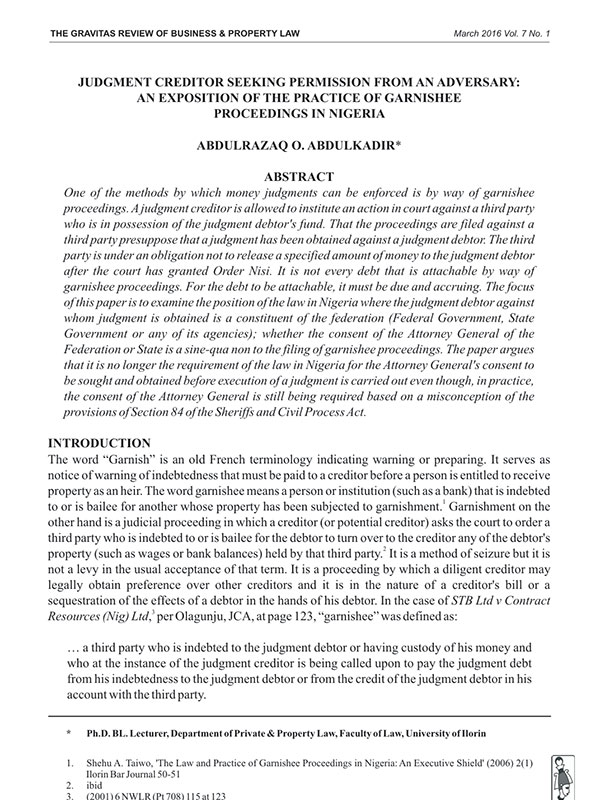
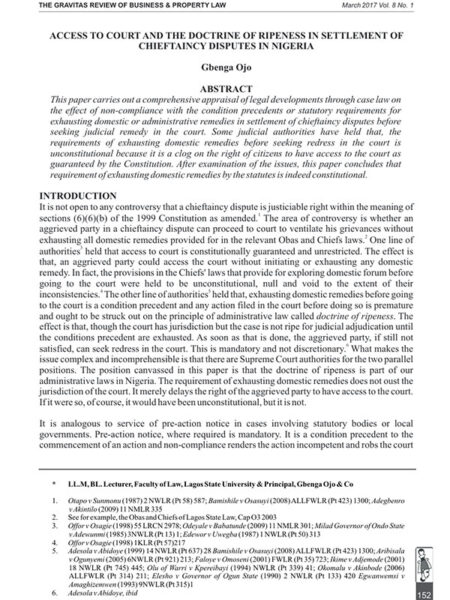
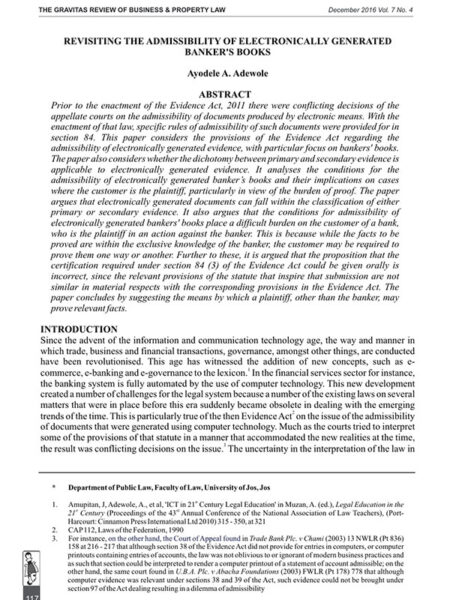
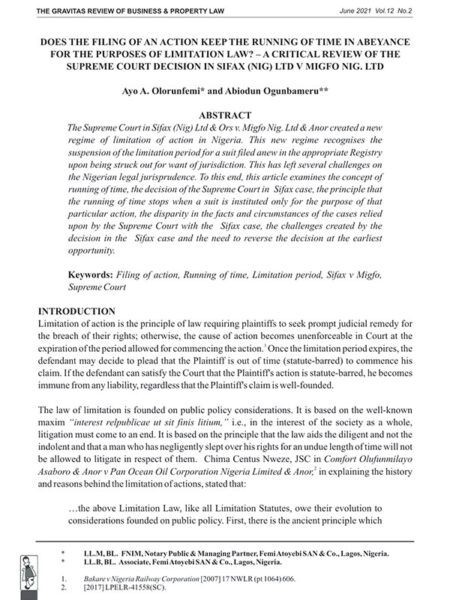
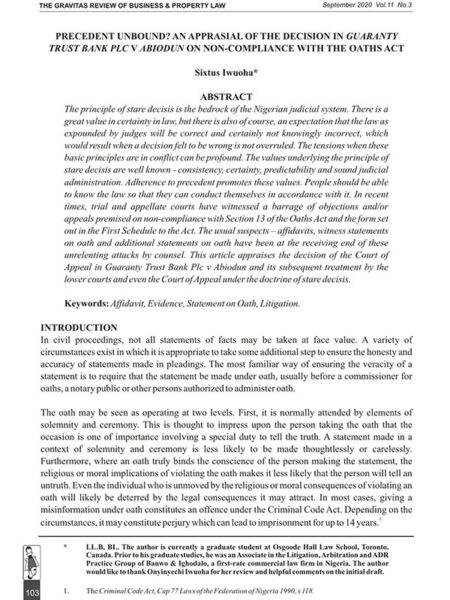


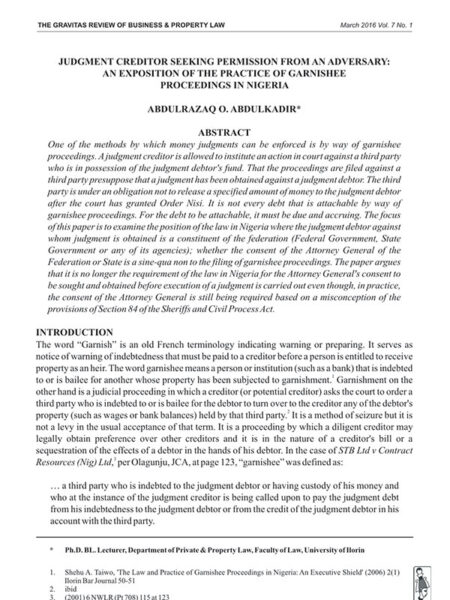
Reviews
There are no reviews yet.